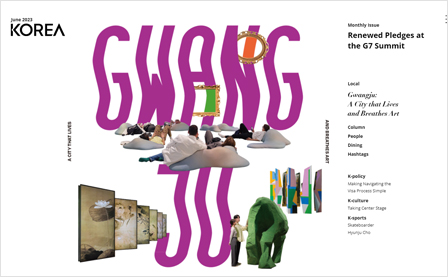September 2023

K-sports
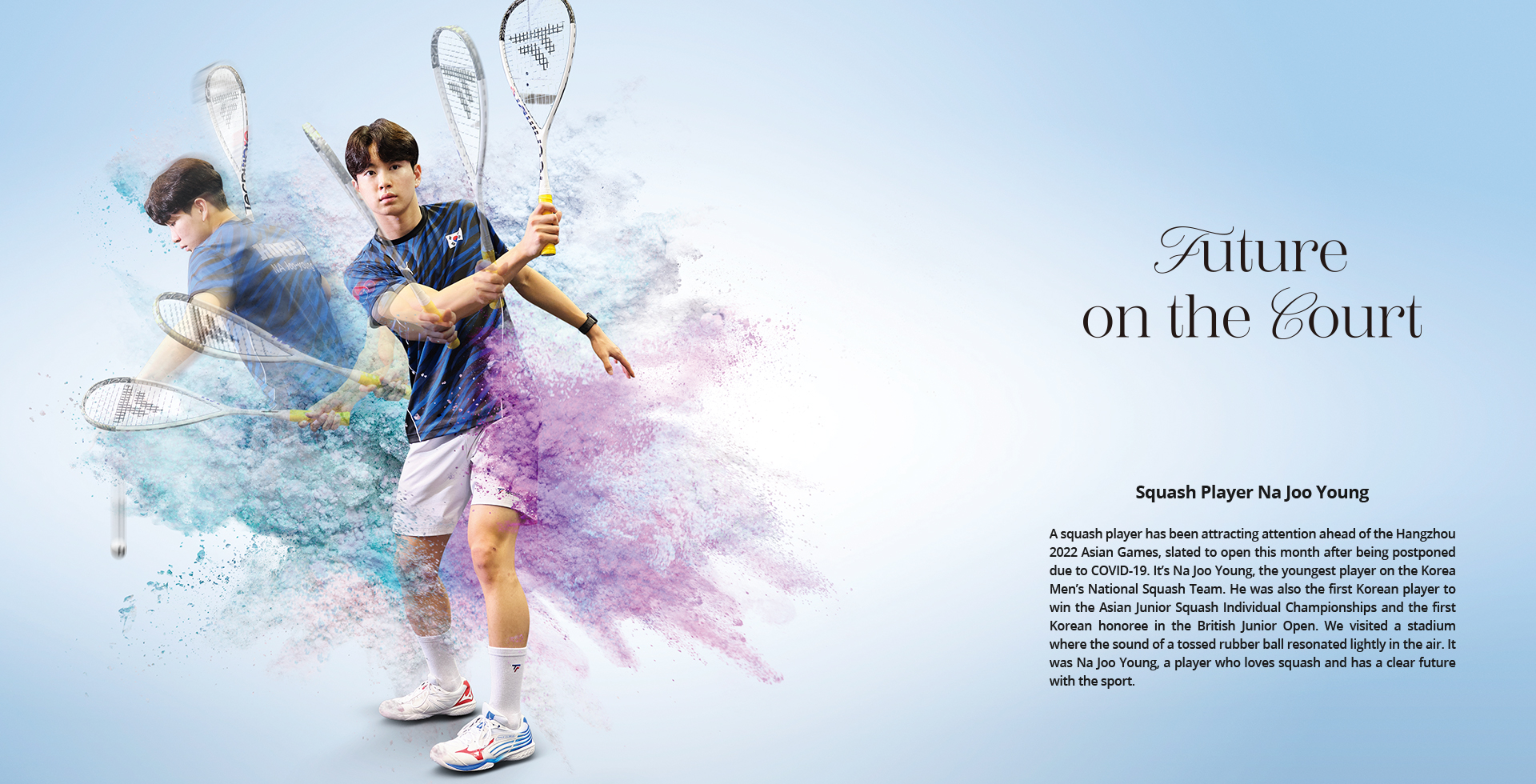
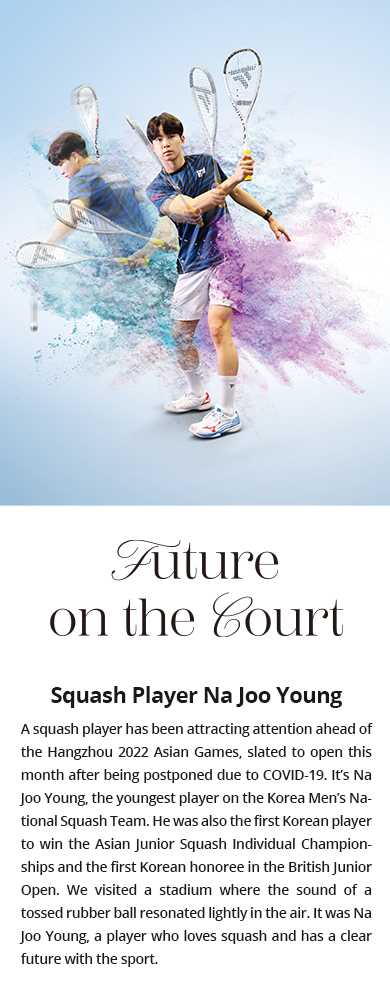
Q. What kind of sport is squash?
Squash is played on a court with six walls surrounded by walls on all sides. The game is played as opponents take turns hitting the ball against the front wall. Before the ball bounces twice on the floor, you must hit it; playing it after that would be considered as a ‘not up’ (referring to the ball bouncing twice), resulting in a point loss. And, there’s also a tin board located 48 cm (In adult matches, the tin board is located 43 cm.) above the floor. You’re out if the ball hits the board or the ceiling outline. There are five games in a match, with the best of three winning the match. Games are played until one team reaches 11 points. Korean individual and doubles matches are held in a best two-out-of-three format.
Q. What’s the difference between squash, tennis and racquetball?
Tennis is played with a net while squash is played as the opponents face a wall in front of them. Racquetball is similar to squash except that players use the ceiling in a court with six walls. Players don’t use the ceiling in squash.
The shots can also be different. “Drive” (a fore or backhand shot), “volley” (hitting the ball before it touches the ground), “drop shot” (a downwards shot) and “lob shot” (launching the ball high to send it to the back of the of the court) are all the same. However, squash has unique shots such as the boast, nick and kill shot. “Boast” is a shot in which the ball is hit against the side wall before hitting the front. The “nick shot” and “kill shot” are the most aggressive and difficult skills, executed by striking the ball using gaps between walls.
Q. What made you want to become a squash player?
My parents were squash coaches who also ran their own squash court. I’ve naturally been involved with squash ever since I was little. However, I didn’t start out as a squash player. I actually played baseball from first to fourth grade in elementary school. Baseball is a team sport, but I found that some of the characteristics of a team sport didn’t suit me. For example, it was more difficult to produce results with my own abilities.
That was when my parents suggested I try squash. The moment I decided that I truly wanted to be a squash player was when I placed second in a competition in elementary school. I started going through formal training so I could follow the path of a squash player.
Q. As the youngest member of the men’s national team, could you share how you earned your spot and what you felt at that time?
I participated in the Korea Open Junior·Senior Squash Championships when I was a senior in middle school. It was a competition where both adult players and student players participated. No student has ever won the competition. I was runner-up in the competition, and became the first student honoree.
Since then, I’ve taken part in a promotion and relegation tournament that involves selecting the best-performing players ahead of major international tournaments. After achieving good results in that competition, I became a national representative for the first time. Following that, I continued my role as a national representative through the national representative selection tournament in December last year and the Asian Games national representative selection tournament in March this year. All of this happened to me in less than two years. I was a little bit dazed at first because it was so unexpected.
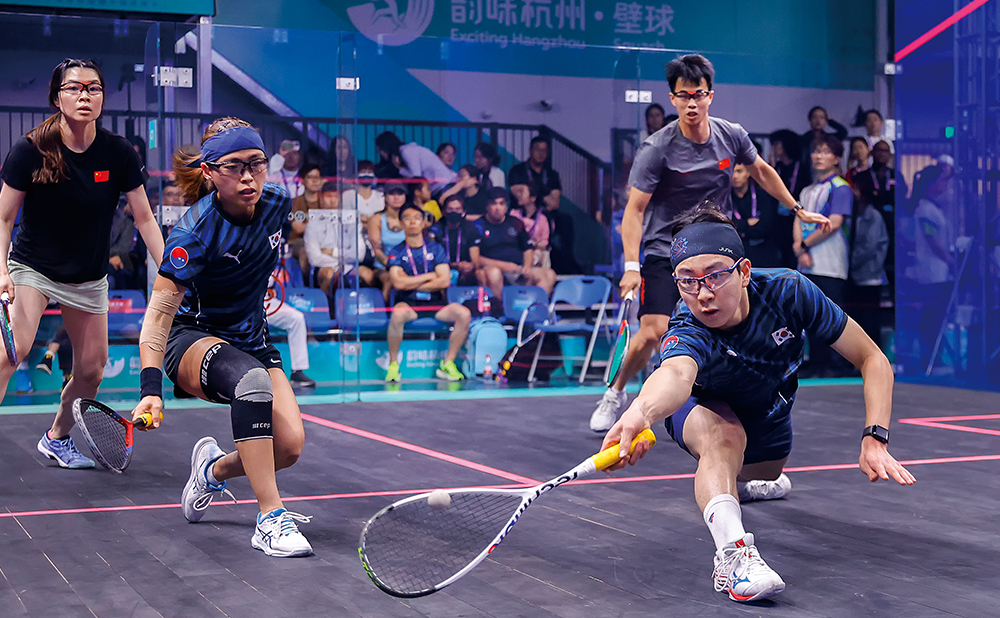 In late June, Na Joo Young teamed up with player Lee Ji Hyun to participate in the Asian Squash Mixed Doubles Tournament held in Hangzhou, China.
In late June, Na Joo Young teamed up with player Lee Ji Hyun to participate in the Asian Squash Mixed Doubles Tournament held in Hangzhou, China. (© Korea Squash Federation)
Q. You said that you didn’t expect to be selected as a national team representative. Do you feel a sense of responsibility when people refer to you as the “first” or the “youngest?”
Modifiers like “first” and “youngest” are part of my own personal record, which means they can’t be erased. They make me feel quite proud and worthy. That’s why people expect a lot from me. I’m very grateful, but it can be a bit burdensome at times. However, I’m not really overwhelmed by the feeling. I enjoy the recognition. I want to show the public more of my skills.
And then, I really like squash. I don’t play because I have to, I play because I truly enjoy the sport. I like the intense sound that comes from hitting the ball hard. I like the exhilarating feeling that comes from earning a point after giving or receiving a rally at a heart-pounding speed. So I use the pressure I feel every time I play a game as a means to enjoy the game.
Q. I think that mindset will help you continue to achieve great things. What would you say are your unique strengths?
I can use a variety of shots with one stance. This helps me achieve a creative shot called the “fake shot.” You can usually anticipate what shot your opponent is going to use based on their posture. I’m able to make unexpected shots such as hitting a lob shot while making it look like I’m going to do a drop shot.
I’m also able to play at a fast tempo and use my wrists better than others. I’m not afraid to make a mistake, which makes it easier for me to utilize creative shots. Doing so helps me prevent my opponent from receiving the ball. Even if they do, it ends up making them exert a lot more stamina than usual.
Q. Do you have any plans for the future?
I aspire to actively participate in the Asian Games, where both Lee Min Woo and I will compete in the individual games, aiming to showcase Korea’s potential on this grand stage. I hope people worldwide will recognize our capabilities and think, “Korea has immense potential in this sport!” Additionally, the British Junior Open, the most prestigious squash tournament globally, is scheduled for January next year, and I intend to participate in the Under-19 division.
Q. What kind of player do you want to become?
My ultimate goal is to make it into the Top 10 of the pro squash rankings. And My parents always tell me, “Be a good person.” I will remember those words and continue building my career with a humble attitude. I want to become a player who paves the way for younger players.
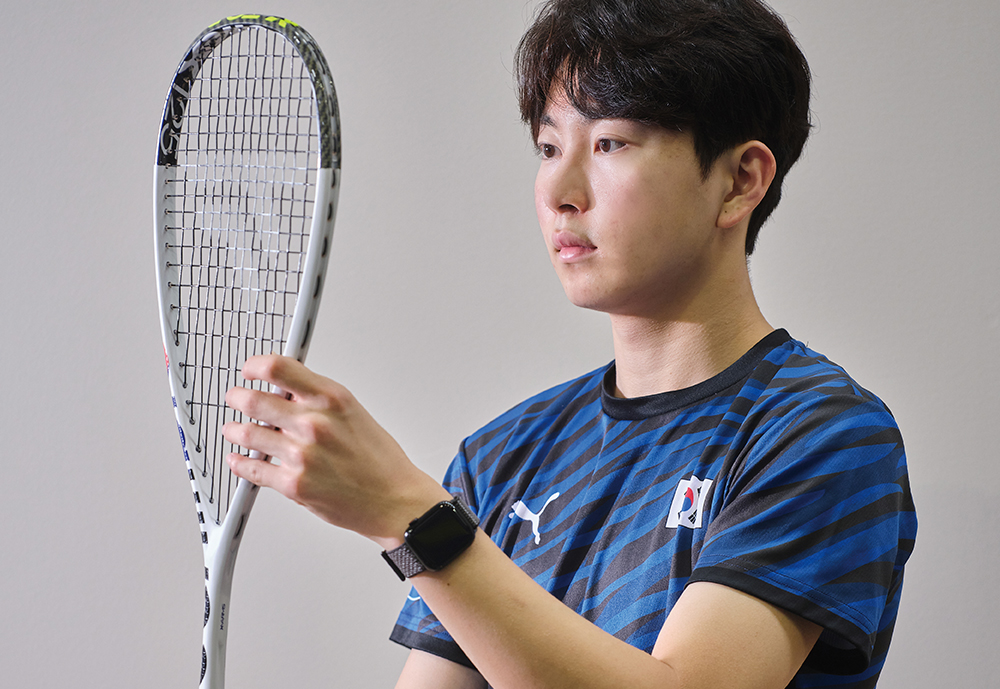
 View of all
View of all

